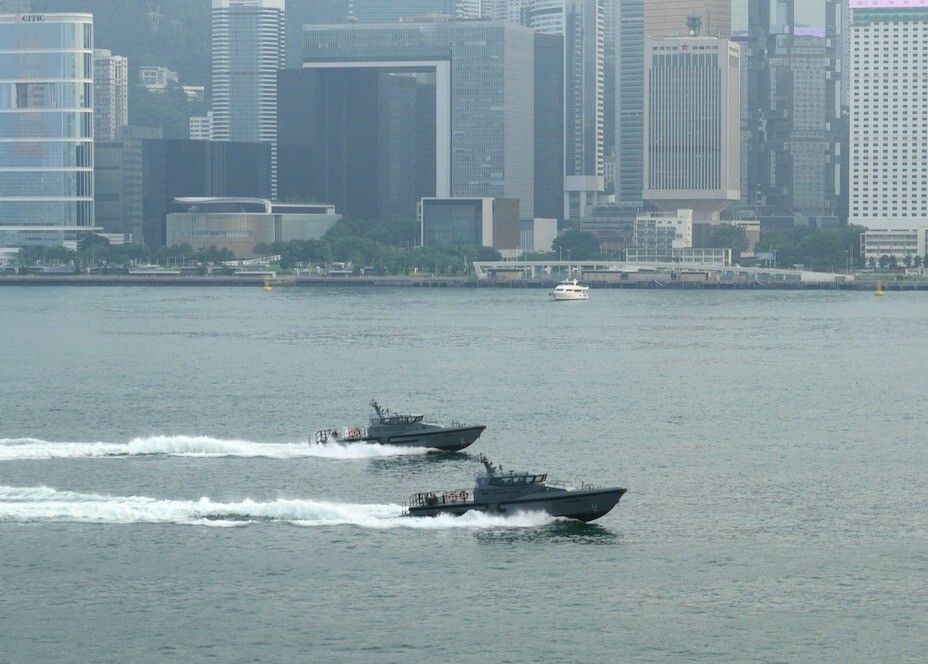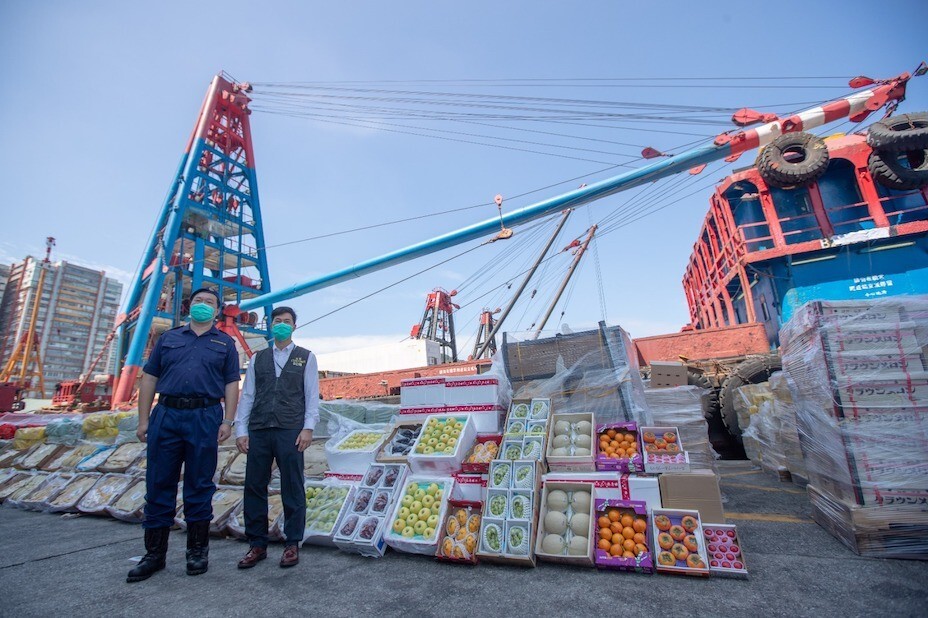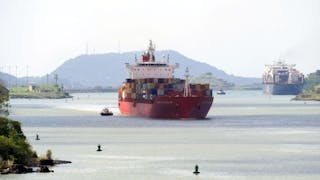9月25日,一艘香港水警快艇在沙洲對開海面遭「大飛」撞翻,高級督察林婉儀不幸殉職,立即觸發香港與內地海警跨境合作,在新冠疫情持續的情況下聯手打擊新型走私活動。
跨境走私猖獗,警方加強合作
新冠疫情持續,令香港犯罪組織生意受損,更令一些普通人對桑拿浴室和夜總會卻步。香港與內地之間的直接陸路運輸也有一定程度受阻,減少了跨境走私活動的機會。於是,犯罪分子紛紛將目光投向海上走私,海上走私不僅規模龐大,而且還包含「一條龍服務」,包括為走私者設立「酒店船」,並利用先進技術,包括使用無人機和閉路電視反監視警方對他們位於新界偏遠地區隱蔽倉庫的打擊行動。
林婉儀在沙洲對開海域遇難,說明香港與內地之間跨境海上走私之猖獗只是冰山一角。就林婉儀殉職事件,香港警務處處長蕭澤頤率領代表團前往深圳,與廣東省副省長兼公安廳廳長王志忠、廣東省海警局局長劉紹根商討跨境警務合作事宜。
雙方同意在戰略、戰術和行動三個方面加強合作,同時提升執法人員安全安全、裝備效能、訓練交流和行動效率。 雙方還同意進一步加強執法,採取聯合行動,全方位打擊犯罪集團。這不僅涉及香港的三合會,還涉及內地的犯罪團伙。
早在2021年4月19日,中山海關緝私局一艘水上緝私摩托艇,就曾遭對方三度撞擊,導致數名執勤人員落水,幸好獲救。廣東海警局將該案列作重大案件督辦,並指令中山海警局盡快偵破。中山海警局分別在5月29日和6月24日拘捕兩名涉案疑犯。
8月30日,陽江海警局查獲涉嫌走私冷凍食品貨船一艘,檢獲冷凍食品貨櫃箱29個。船上裝載涉嫌走私冷凍食品約700噸,價值約6000萬元人民幣。很明顯,走私集團可能企圖將冷凍食品從香港走私回內地。
警方犂庭掃穴,淨化水上治安
因為林婉儀的殉職,加上港媒報道,走私集團出動數百艘「大飛」,從香港水域內的駁船上運走數以噸計的走私物品,香港警方迅速採取行動。首先,警方動員6364人次展開「犂庭掃穴」行動,共拘捕131人,當中23名男子有黑社會背景,涉嫌參與海上走私活動。
9月25日至30日,香港警方共搜查各類娛樂場所437次,拘捕108人,指他們涉嫌干犯與三合會活動相關的罪行。所有這些打擊犯罪行動,對於阻遏犯罪組織至少在短期內進行公開、非法和走私的活動都是必要的。
10月2日,廣東海警局與香港水警協同配合,在粵港西部海上邊界附近水域拘捕了145名涉嫌為走私者提供「酒店船」疑犯。這些船隻用於接收「大飛」的走私物品,為海上走私者提供住宿,並作為海上走私路線的中轉站。粵港警方共查扣「酒店船」19艘、「大飛」5艘和鐵殼船1艘。
在「酒店船」上,有提供給走私者的床鋪和補給食水箱。 香港水警還與澳門海警合作,持續加大打擊珠江口水域「酒店船」違法活動,壓縮「大飛」和走私集團的生存空間,全面淨化珠三角水域的治安環境。
早在2021年8月,廣東省東莞、廣州、深圳三地海警聯合江西警方,共拘捕疑犯15人,扣查車輛7輛,沒收銀行卡102張,涉案金額逾23萬元人民幣。 這些犯罪分子活躍於海上走私活動,擁有4支可用於走私和海盜活動的手槍和武器。
據香港海關統計,2021年1月至8月,破獲海上走私案件52宗(金額4.8億港元),對比2019年為55宗(1.6億港元),2020年破獲62起(4.9億港元)。顯然,2021 年前八個月的案件數量大幅上升,表明犯罪集團對海上走私活動的依賴。
黑幫吃定警方,大飛密密搬貨
2021 年中期走私活動的時機很重要;香港和內地的犯罪組織抓住中秋節的機會,跨海走私各種貨物。僅一天,港珠澳大橋下面就有多艘「大飛」藏匿,出海接應躉船卸下的走私物品。這些「大飛」賭的是香港水警沒有足夠大馬力的快艇來抓他們,尤其是走私「大飛」像「螞蟻」一樣「密密搬貨」。
據報道,香港警方沒有足夠大馬力、配備四具馬達的快艇同時處理數百艘走私快艇。在大澳對開海域,每艘快艇可運載價值100萬港元的走私貨物,而這些快艇的船長大多是內地人。內地船長每運一趟可領1000元,海上走私高峰期每天可運五、六趟。即是說,每個內地船長如果不被內地海警或香港水警抓到,每天便可賺到一萬多元,這對他們冒險的誘因很大。

一些內地走私集團利用深圳南山區的大鏟島作為接收港方走私貨物的重要中轉基地。 大鏟島是深圳第二大離島。 廣州海警局進行風險評估,將大鏟島視為重要的走私地點。2019年至2021年,廣州警方破獲海上走私案件1300宗。2021年前8個月,共破獲海上走私案件710宗,涉案金額4億元人民幣。
走私利潤豐厚,引發黑幫內鬥
香港方面,據報道,三個主要幫會參與了海上走私活動。早在2020年9月,據報一名黑社會頭目被同一組織內敵對的頭目暗殺,因為他被發現利用荃灣西一個貨櫃碼頭進行賺錢的走私活動後,與另一頭目談判破裂。由於海上走私賺取的利潤豐厚,可能會導致組織內部的衝突和權力鬥爭。
正如本港執法部門 10 月 6 日所指出,涉及幫會的跨境走私活動變得比以往任何時候都更加複雜和嚴密。首先,走私集團大膽利用大嶼山東涌牛凹村的政府用地,在那裏非法建造和改裝大馬力快艇進行走私活動。10月初,香港警方與地政總署和政府飛行服務隊合作,在牛凹村發現了走私基地。警方發現39艘大馬力快艇和8台舷外發動機。 所有快艇都沒有在海事處登記。
10月7日,香港警方破獲另一走私集團,以屯門龍鼓灘海濱為走私點,查獲魚翅、人參、燕窩、花膠、肉毒桿菌針等總值2.1億港元的物品,走私集團部署了監視攝像頭和無人機,以便「反監視」警方的行動。走私集團的貨車被拆除車牌或套用假車牌,並利用鐵鏈和廢舊車輛封鎖通往存放貴重走私物品倉庫的道路。
加強執法力度,打擊跨境犯罪
香港警方通過與內地警方情報共享打擊走私集團。他們使用高科技來揭開走私集團用來製造快艇和儲存走私產品的隱藏地點。警方又追查走私集團的倉庫、調查犯罪組織的資金來源。通過沒收走私貨物和快艇,香港警方已經查清了走私活動的根源,斷了黑幫的經濟來源。
10月6日,《文匯報》社評稱,粵港澳大灣區融合是大勢所趨,打擊跨境犯罪更是推動本港與大灣區機制對接的重要一環。本港警方應跟大灣區內地城市攜手合作,加強執法力度,包括考慮成立專責小組與大灣區共商反走私策略,加快部署、共同行動,更有效維護大灣區法治秩序、市場秩序,保障公眾安全利益。
總而言之,高級督察林婉儀的不幸殉職,促使香港警方與內地和澳門警方加強合作,共同打擊跨境走私活動和犯罪團伙。通過情報共享活動和聯合反走私行動,海上走私活動得以暫時遏制。儘管如此,這種合作必須堅持下去,為香港與大灣區更深入、更快地融合打下更堅實的基礎,特別是在新冠疫情遲早有望消退的情況下。另一方面,跨境走私活動的日益複雜和猖獗,表明不法之徒是如何抓住一切機會牟取暴利的。未來數十年,警察和走私者之間的貓捉老鼠遊戲可能會成為華南地區持久存在的現象。
Cross-border police combat against maritime smuggling syndicates
The tragic death of a senior inspector, Lam Yuen-yee, who died after a Hong Kong police vessel was crashed by a turbocharged speedboat on September 25, triggered an immediate cross-border marine police cooperation between Hong Kong and the mainland against a new style of smuggling syndicates amid the persistence of Covid-19.
The continuation of Covid-19 has been undermining the business of criminal organizations in Hong Kong and deterring some ordinary people from visiting saunas and nightclubs. Direct land transportation between Hong Kong and the mainland has also been hindered to a limited extent, reducing the chances of cross-border smuggling activities. As a result, criminal elements have been turning their covetous eyes on maritime smuggling, whose operations are not only of large scale but also entailing “one dragon service” that includes the establishment of “marine hotel boats” for smugglers and the technological advancement of using drones and surveillance cameras to detect police crackdown on their hidden warehouses located at the remote areas of the New Territories.
The death of Lam Yuen-yee on the waters off Sha Chau was only a tip of the iceberg in illustrating the severity of cross-border maritime smuggling between Hong Kong and the mainland. In response to the Lam incident, the Hong Kong Police Commissioner, Raymond Siu, led a delegation to Shenzhen and discussed cross-border police cooperation with the Guangdong vice-governor and public security chief Wang Zhizhong and the Guangdong marine police head Liu Shaogen. Both sides agreed to collaborate closely in the three areas of strategy, tactics and operation, while simultaneously elevating the standard of protecting the security of law-enforcement officers, improving their equipment, exchanging their training and experiences, and enhancing the operational efficiency. They also agreed to increase the frequency of joint combat against cross-border criminal and smuggling syndicates, which involve not only the Hong Kong triads but also mainland counterparts (Wen Wei Po, October 6, 2021).
As early as April 19, 2021, the Zhongshan marine police’s patrol boat was rammed three times by a cross-border smuggling speedboat. Several mainland marine police officers were plunged into the waters, but they were fortunately rescued. The Guangdong marine police ordered the Zhongshan marine police to investigate further and dig out the ringleaders of the smuggling syndicate. In May and June, the Zhongshan police arrested two criminal suspects involved in the smuggling standoff with the marine police (Oriental Daily, October 1, 2021). On August 30, the Yangjiang marine police confiscated 700 tons of frozen food which amounted to 60,000,000 yuan and which was stored in 29 containers n a ship. Clearly, smuggling syndicates tried to smuggle frozen food likely from Hong Kong back to the mainland.
In response to the death of Lam and the reports from the Hong Kong media that smuggling syndicated deployed hundreds of speedboats to pick up tons of smuggled products from various barges in the waters, the Hong Kong police took swift action. First, the police conducted a series of raids mobilizing 6,364 law-enforcement officers to arrest 131 people among which 23 not only had triad background but were also involved in smuggling activities. From September 25 to 30, the Hong Kong police inspected all kinds of entertainment venues in the Hong Kong Special Administrative Region (HKSAR) for 437 times, arresting 108 people who were involved in triad-related activities (Oriental Daily, October 1, 2021). All these anti-crime operations were necessary to deter the criminal organizations from conducting open, illegal and smuggling activities at least in the short run.
On October 2, the marine police from Hong Kong and Guangdong conducted a joint maritime operation, arresting 145 people who were involved in the provision of “marine hotel boats” for the smugglers on the waters of the Pearl River Delta (Oriental Daily, October 3, 2021). These boats were used to receive the smuggled products from speedboats, provide accommodation for the maritime smugglers, and act as the transit points for the sea smuggling routes. The marine police from the two sides confiscated 19 “marine hotel boats” and 5 speedboats. On the “marine hotel boats,” there were beds and water tanks provided for smugglers. The Hong Kong marine police also cooperated with the Macau counterparts to uncover and smash some “marine hotel boats,” squeezing the survival space of speedboats and smuggling syndicates and cleaning up the law-and-order situation on the waters of the Pearl River Delta.
As early as August 2021, the Guangdong marine police at Dongguan, Guangzhou and Shenzhen cooperated with the Jiangxi provincial police to arrest 15 criminal suspects, detain 7 vehicles and confiscate 102 bank cards that amounted to 230,000 yuan. These criminal elements were active in maritime smuggling activities and possessed 4 pistols and weapons that could be used in smuggling and piracy operations.
According to the statistics revealed by the Hong Kong customs, 52 cases of maritime smuggling operations (amounting to HK$480 million) were smashed from January to August 2021, compared with 55 cases (HK$160 million) in 2019 and 62 cases (HK$490 million) in 2020. Obviously, the number of cases went up considerably in the first eight months of 2021, demonstrating the criminal syndicates’ reliance on maritime smuggling activities. The timing of smuggling activities in mid-2021 was important; criminal organizations in Hong Kong and the mainland grasped the opportunity of the mid-Autumn Festival to smuggle all kinds of goods across the sea. On one single day alone, many speedboats were hiding under the Hong Kong-Macau-Zhuhai bridge, going out to the waters to receive the smuggled products unloaded from large barges. These speedboats gambled that the Hong Kong marine police did not have sufficient and powerful speedboats to catch them, especially as the smuggling speedboats were acting like “ants” moving their “food” in a large number (Oriental Daily, September 19, 2021).
It was reported that the Hong Kong police do not have enough high-powered and four motors-equipped speedboats to deal with hundreds of smuggling speedboats at the same time (Wen Wei Po, September 29, 2021, A3). On the waters off Tai O district, each speedboat could carry smuggled goods amounting to HK$1 million and most captains of these speedboats were mainlanders. Each mainland captain could receive 1,000 yuan per trip, and he could attempt five to six trips per day during the high time of maritime smuggling. In other words, each mainland captain could earn over 10,000 yuan every day if he was not caught by the mainland or Hong Kong marine police – a high incentive for them to take risks.
Some mainland smuggling syndicates used the Dachan Island in Shenzhen’s Nanshan district as a crucial transit base to receive the smuggled goods from the Hong Kong side (Wen Wei Po, October 3, 2021). The Dachan Island is the second largest outlying islands in Shenzhen. The Guangzhou marine police conducted risks assessment, seeing the island as a crucial smuggling site. From 2019 to 2021, the Guangzhou police smashed 1,300 cases of maritime smuggling. During the first eight months of 2021, they had already tackled 710 cases of maritime smuggling that amounted to 400 million yuan.
On the Hong Kong side, three main triads were reportedly involved in smuggling activities across the high seas (Wen Wei Po, September 29, 2021). As early as September 2020, a triad boss was reportedly a target of assassination by his rival gangsters within the same organization, because a negotiation between him and another ringleader broke down after he was found to use a container port in Tsuen Wan West for lucrative smuggling activities (Ta Kung Pao, October 7, 2021). Intra-organizational strife and power struggle could occur due to the territorial profits earned from the highly lucrative maritime smuggling.
The triad operation of cross-border smuggling, as the law-enforcement authorities in the HKSAR revealed on October 6, became far more elaborated and sophisticated than ever before (Ta Kung Pao, October 7, 2021). First, the smuggling syndicate daringly occupied a government site in the Ngau Au village in Tung Chung, Lantau Island, where they manufactured and repaired powerful speedboats for smuggling operations. In early October, the Hong Kong police cooperated with the Lands Department and the Government Flying Service to discover the smuggling base in Ngau Au village. The police found 39 high-powered speedboats and 8 outboard motors engine (Ta Kung Pao, October 7, 2021). All the speedboats were not registered with the Marine Department.
On October 7, the Hong Kong police discovered and smashed another smuggling syndicate that used Tuen Mun’s Lung Kwu Tan seaside as a smuggling spot, where HK$210 million worth of goods including shark fins, ginseng, bird nests, flower maw and Botox needles were found. The smuggling syndicate deployed surveillance cameras and drones to detect any police crackdown activities. It hid the license plate numbers of the vehicles used for smuggling, while utilizing chains and old vehicles to block the roads leading to the warehouse that stored precious goods for smuggling operation.
The Hong Kong police dealt with smuggling syndicates through intelligence-sharing operations with the mainland counterparts. They also use high technology to uncover the hidden places used by smuggling syndicates to manufacture speedboats and store smuggled products. The police also chased the warehouses of smuggling syndicates and investigate the financial sources of criminal organizations. By confiscating the smuggled goods and speedboats, the Hong Kong police have already tackled the origins of smuggling activities and smashed the triads’ financial income.
On October 6, Wen Wei Po editorialized that if Hong Kong’s integration with the Greater Bay Area (GBA) is inevitable, it is necessary for the Hong Kong police to cooperate more closely with their counterparts in the GBA cities, that a special task force should be set up with the GBA to combat smuggling activities, and that law and order and public interest will have to be fully protected in the process of integration (Wen Wei Po, October 6, 2021, A2).
In conclusion, the tragic death of inspector Lam Yuen-yee sparked the closer cooperation between the Hong Kong police and their mainland and Macau counterparts in the joint combat against cross-border smuggling activities and syndicates. Through intelligence-sharing activities and joint anti-smuggling operations, the maritime smuggling syndicates are temporarily curbed. Nevertheless, such cooperation will have to persist to prepare a more solid foundation for Hong Kong’s deeper and faster integration with the Greater Bay Area, especially once Covid-19 will hopefully fade away sooner or later. On the other hand, the increasing sophistication and the prominent proliferation in cross-border smuggling activities demonstrated how criminal elements grasped every opportunity to profit themselves lucratively. The cat-and-mouse game between the police and smugglers will likely be an enduring phenomenon in the South China region in the coming decades.
原刊於澳門新聞通訊社(MNA)網站,本社獲作者授權轉載。







































